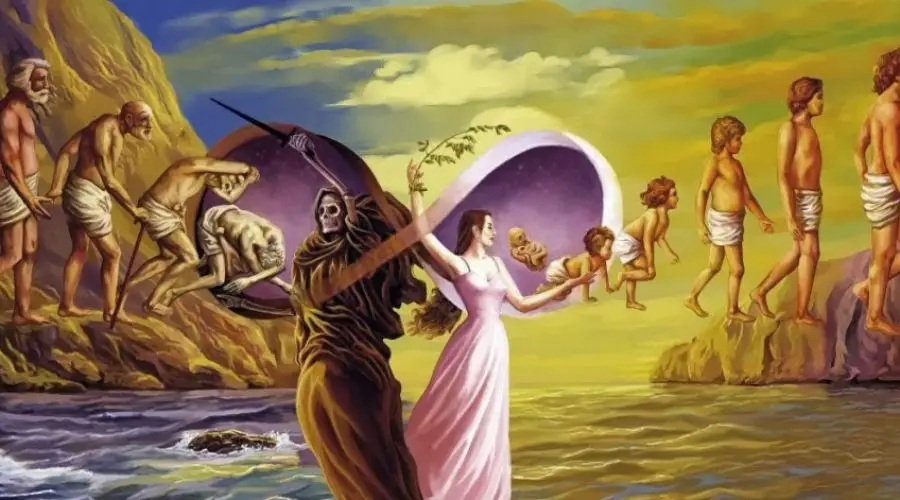Karma and Reincarnation Demystified | Basics of Hinduism
Vedic astrology is based on karma and reincarnation theories. And people have been torn apart by the question of what happens after death from the beginning of time. What purpose do we serve in this life? The solution to this question can be found deep within the theory of karma and rebirth.
You are who you are in this life as a result of the numerous previous lives you have lived. Past lives, reincarnation, and their connection to karma are all notions that different religions believe in. However, the foundation of it all is extremely powerful, profound, and difficult to comprehend the connection.
Some believe it is a continuous cycle of many incarnations, while others believe this is the only life we will ever have and that there is no going back. Let’s take a closer look at the concepts of karma and reincarnation, as well as everything that goes with them.
What exactly is karma?
Each of us, according to astrology, carries a unique combination of vibes and energies. It not only shows the purpose of our lives, but it also allocates or entitles us to our karmas. Both good and bad energies are carried by the planets in your Kundali. Not only in terms of vibes, but also in terms of consequences in other areas of life. You can receive a past life regression and a Kundali analysis from our elite astrologers to comprehend this complete notion.
But what is Karma, exactly? Isn’t it just the things we do? Karma, on the other hand, is the force or strength that is created when you do something. Life, according to the Law of Karma, does not punish you for your actions; rather, it punishes you because of your actions.
How do you deduce the concept of karma from Kundali?
Are you familiar with the planet Saturn? That’s all there is to it. Saturn’s position in your Kundali is essentially a Karmic Agent. Aside from that, Sade Sati’s philosophy is linked to your Karma cycle. It’s the time of year when you’re confronted with Saturn’s keen energies and are compelled to reflect on your karmic debts.
What is the meaning of Reincarnation?
The concept of reincarnation is complex. For millennia, there has been a reassuring trust in our religion that has always removed the fear of death.
Reincarnation is defined as the return or incarnation of your soul and a spiritual world into a new body. It also repeats this cycle several times, learning new things and lessons through karma.
Samsara is another name for this cycle of souls changing bodies. As part of nature’s repeating rule, you may have had previous incarnations as plants, animals, spiritual beings, or anything else. To put it another way, if your soul is living, it instantly adds to your reincarnation cycle.
When you die, whatever you have with yourself—whether it is wealth, lands, or any other physical possession—you will not be able to bring it with you in any of your subsequent lifetimes. The only thing you have with you is your soul, which is writing a new chapter in your life.
The link between Reincarnation and Karma
Karma and rebirth are inextricably linked. Your karma determines what you will experience in your next life.
It’s more along the lines of “you reap what you sow!” Karma and reincarnation are linked, which explains why some of you may not pay for your sins in this lifetime but will in the future.
In addition, there is a loophole known as Mosha in this cycle. When a person achieves Moksha, the cycle of reincarnation is broken, and they are free of their karmic debts as well as a loop or series of incarnations.

